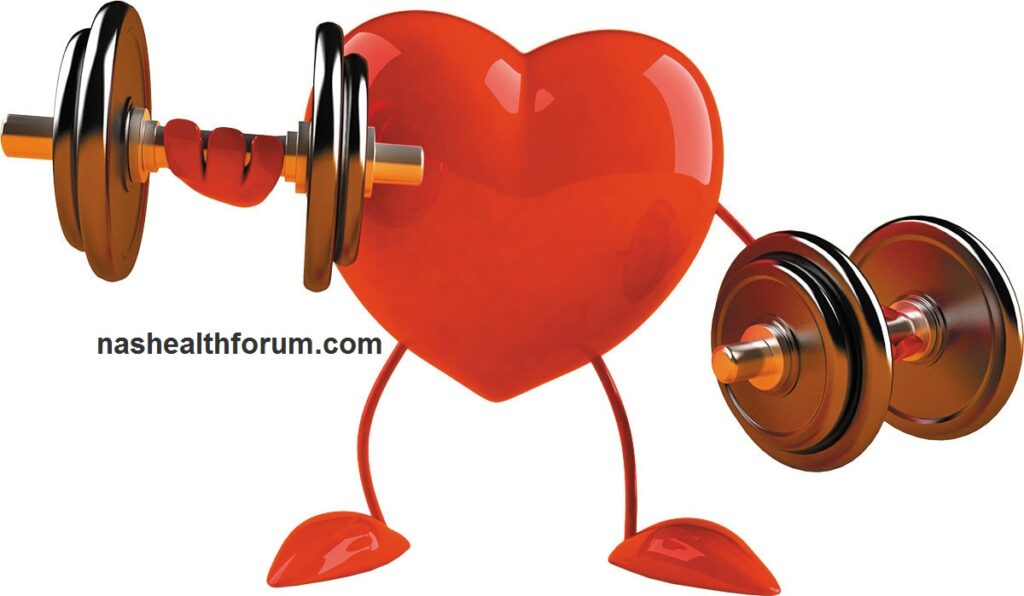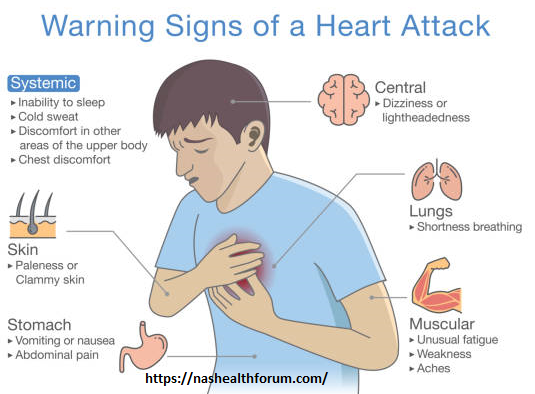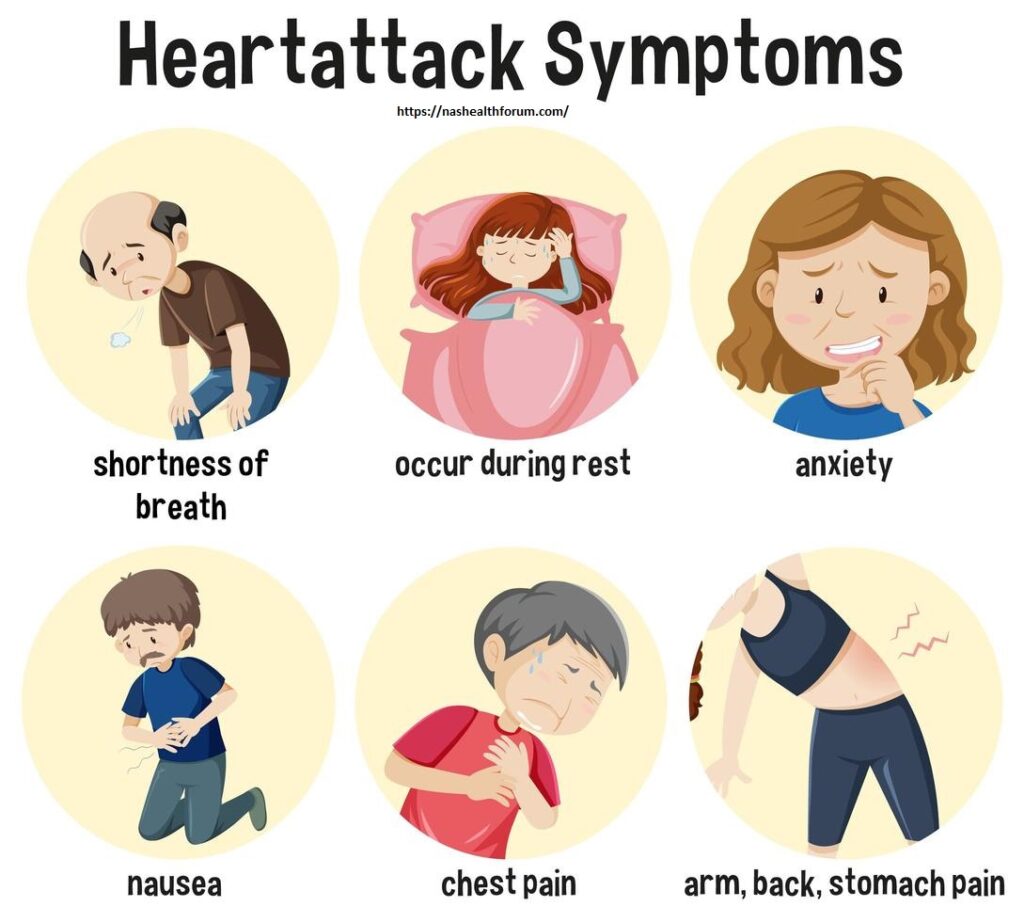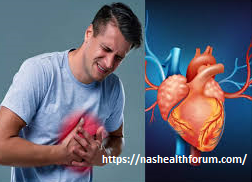Heart trouble often begins with subtle warning signs that many people ignore. Recognizing these early symptoms can help prevent a serious condition like a heart attack.

We all take our hearts for granted. For most of us, that little muscle is not even something that is at the top of our minds unless something is really wrong with our heart like heart attack,that little muscle has been peddling away second after second in our lives, full-on. But what if I told you that your heart trouble, by and large, does what we ask of it: It is attempting to tell you something is wrong — we don’t always know how to listen?
Table of Contents
That’s the answer we’re unpacking today. So, we’re going to talk about the early signs of heart (Trouble)attack, but also about the early signs of heart disease, and what the early signs of heart attack look like for women (isn’t it known as “a man’s disease”? spoiler alert: they’re not always what you think), and even what heart blockage feels like when it’s just starting to happen. So, if you’ve been asking yourself, “What are the early signs of a heart attack? Or ”How do I know if my heart is healthy?” — this one’s for you.

What Are Initial Signs of a Heart (Trouble)Attack?
Alright, first things first. What do you picture when you think of a heart attack?
A movie scene in which somebody clutches their chest and falls to the ground? That could be true — but in fact, heart attacks are mostly far less dramatic.
So, what are the early signs of a heart attack that you should truly take note of? Here’s the not-so-glamorous reality:
Chest discomfort: This is the hallmark symptom, though it is not always experienced as pain. It may feel like tightness, squeezing, fullness, or burning.
Shortness of breath: This may occur before or with the chest pain. It can also hit while you’re resting or doing light activities.
Nausea or indigestion: It’s probably something you ate, many people think. Persistent heartburn may sometimes be your heart-wailing for rescue.
Cold sweat: This is not sweat from exercise or from being warm. This is the clammy, something ‘s-not-quite-right kind of sweat.
Feeling light-headed or dizzy: If you feel faint, unsteady, or like you might faint — take it seriously.
Pain in other parts of the body: Heart attacks don’t always hurt in your chest. It can appear as discomfort in your jaw, back, neck, arms (especially the left one), or even stomach.
So here’s the kicker — these symptoms do not always manifest all at once, and they don’t even need to be egregiously bad. Some say they didn’t know they were having a heart attack even while it was happening. Don’t be that person.
Every Woman Needs to Know: The Symptoms of Heart Attack in Women Are a Whole Different Ballgame
So, ladies, this is for you — but also for guys who want to be equipped to care for the women in their lives.
Many of the early signs of a heart attack show up very differently in women compared with men.
That’s one reason many women’s heart attacks go undetected or misdiagnosed.
Here are a few early warning signs that women should take seriously:
Extreme fatigue: The not [I didn’t sleep great] tired. We’re talking the exhausted-for-no-reason kind, the bone-deep, can’t-lift-your-head kind.
Sleep problems: Trouble falling or staying asleep or waking up feeling like you didn’t sleep at all.
Pain in your back, jaw, or neck: You may feel pain or feel like you strained something in these areas, but it’s not a muscle thing.
Indigestion or stomach pain: Like heartburn that won’t go away or a constant sensation that you need to vomit.
Difficulty breathing: Particularly if you’re not doing anything strenuous.
A feeling of dread or fear: Some women say they experience feelings of “impending doom” just before having a heart attack.
The problem? These symptoms could also be a hundred other things — stress, fatigue, PMS, anxiety, aging. But if they’re new or persistent or feel wrong, do not disregard them. Women are also more likely to postpone seeking help, and that delay can be dangerous.
Heart(Trouble)Disease Read Early Signs:-
Long before we get full-on heart attacks, your body may have been signaling heart disease more generally. This stuff can creep up on a person extremely slowly over time, but still — early signs of heart disease are real things and super important to pay attention to.
Here are a few to watch:
Hypertension: You usually don’t feel it, but it’s killing your arteries decade after decade. Silent but deadly.
High cholesterol: This one’s a sneaky one, too. It clogs your arteries and impedes blood flow.
Shortness of breath with activity: If you used to jog up the stairs but are now huffing halfway, that’s a warning sign.
Chest discomfort or pressure: It could be your heart reporting that it’s working too hard, even if you’re not in pain.
Swelling in your legs, feet, or ankles: When your heart isn’t pumping blood like it’s supposed to, this can occur.
Fatigue: Yeah, this again. But when it comes without an apparent explanation, it might be more than a craving for nap-time snacks.
Heart disease is not something that happens overnight. It builds up in silence, and one day, your body says, “No more.” The earlier you find it, the more likely you are to reverse it or at least be able to manage it.”
How Do You Feel About Symptoms of Heart Blockage?
Do you know anyone who ever needed a stent or bypass procedure? That’s usually because they had blocked arteries. Medically, it’s called coronary artery disease, but the average person thinks of it as “blocked arteries” or “heart blockage.”

Early signs of heart(Trouble) blockage:-
Angina: This is chest pain or discomfort caused by insufficient blood to the heart. It is generally provoked by physical exertion or stress and relieved by rest. Fatigue and shortness of breath: Yes, yes — they’re still common for a reason.
Heart palpitations: Do not ignore if your heart is fluttering, pounding, or skipping. Dizziness or lightheadedness: Especially when at rest.
Discomfort in the arms, shoulders, or even upper back: Usually triggered by exertion and relieved by rest.
The heart blockage issue is that the artery may be 70-80% blocked, and you would feel nothing. That’s why early detection is important — blood tests, stress tests, or even a heart CT scan can find red flags before it does significant damage.
Real People, Real Stories
Add in a couple of real-life examples because sometimes, hearing how it worked out for someone else makes something click.
Story 1: “My uncle was convinced he had indigestion for three days. He was just pounding Tums and saying, It’s just spicy food. Until one night, he awoke in a sweat, gasping. He was having a third, it turned out, after having already had two mild heart attacks. They brought him to the hospital. So now he tells everyone: “If it feels weird, don’t wait.
Story 2: “A friend of mine, 38, a healthy guy, started to get winded walking the dog. Brushed it off. Then he fainted at work. He had a 90 percent blockage in a couple of arteries. Zero symptoms before that. He had a stent put in, and now he’s a walking public-service announcement for heart health.’
The third story: “My mother said she felt ‘off’ — back pain, nausea and just strangely emotional. She thought it was her anxiety or menopause. It was a heart attack. No chest pain at all “If she wasn’t going in, it could’ve been a lot worse’.”
These are not rare stories — they are common, which is why we all need to pay attention.
Take Action: What Can You Do?
Well, I don’t want to leave you in fear. Let’s talk solutions. Because the good news? You have much to gain by guarding your heart.
Get to know your numbers.
Blood pressure, cholesterol, blood sugar, all big ones. Review them annually and maintain familiarity with changes.
You won’t have to go to the gym seven days a week.
Just walk more. Dance. Do yoga. Whatever causes your pulse to quicken.
Eat smarter:-
Fire it up with whole grains, fruits, veggies, and healthy fats (olive oil, nuts, etc.) Reducing the consumption of processed foods like sodium and sugar. Your heart will thank you.
Manage stress:-
Long-term stress = long-term inflammation a cranky heart. Talk to God about your chores and responsibilities, experiment with some meditation, journaling, therapy, or just time outside of your head to cool down and relax.
Sleep like it’s your job:-
Seriously. 7–9 hours. Every night. No scrolling, no excuses.
Don’t smoke:-
Pretty self-explanatory. And smoking is like throwing gasoline on the fire of heart disease.
Listen to your body:-
If you are asking, “What are the first signs of a heart attack? and it feels a little wrong don’t delay. Get checked. It could save your life.
Your Heart Trouble Is Speaking… Are You Listening?
The bottom line? You are strong little hearts, but we are not invincible. It’ll try to warn you if something’s wrong — you have to know what to look for.
Remember these keywords; they can actually save a life:
- Early signs of heart attack.
2. Early signs of heart disease.
3. Abdominal pain Many women have early warning signs of heart attack that men do not.
4. What are the warning signs of a heart attack
5. Early signs of heart blockage
Top Workouts (Exercise) for your Healthy Heart:-

To prevent heart disease and keep your heart healthy, you should engage in aerobic (cardio), strength, and flexibility exercises:
- Aerobic Exercises (Best for Heart Health)
- Walking ( Fast)– 30 minutes a day or more (enhances circulation).
- Running/Jogging – Increases heart capacity.
- Cycling – It builds heart and lungs (low-impact).
- Swimming – Full body workout without impact to your joints.
- Dancing/Zumba – Good way to get the heart rate up in a fun environment.
- Strength Training (Aids in Heart Function)
- Bodyweight Exercises – Such as pushups, squats and lunges.
- resistance Bands/Weights – Aids in lowering blood pressure & cholesterol.
- Flexibility & Balance (Lowers The Stress on Your Heart)
- Yoga – Good for the circulation & stress.
Exercise – Keeps your dog from being stiff, and works on keeping them overall fit.
Key Tips:
- 30-60 min/day, 5+ days per week.
- Combine cardio + strength for maximal impact.
- Keep moving – avoid prolonged sitting.
Strong heart = physically and mentally longer life.
Don’t even wait until the going gets tough. Don’t ignore the “weird” symptoms. And never, ever think that you are too young or too healthy for heart trouble.
If your body is speaking, heed the warning before it becomes a scream.
Your heart has been beating since before you came into this world. Show it some love.
